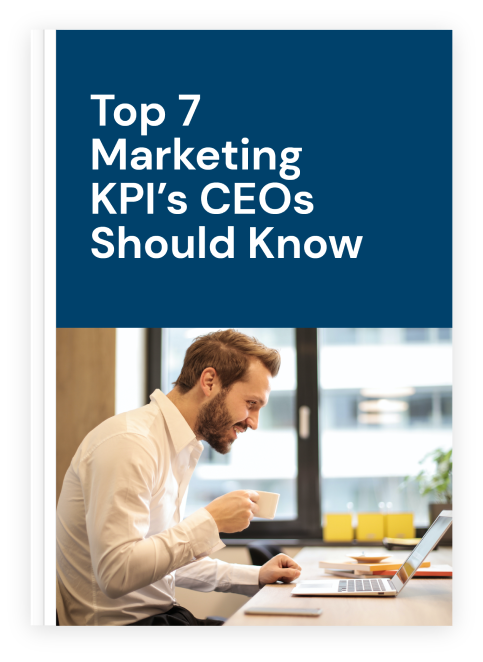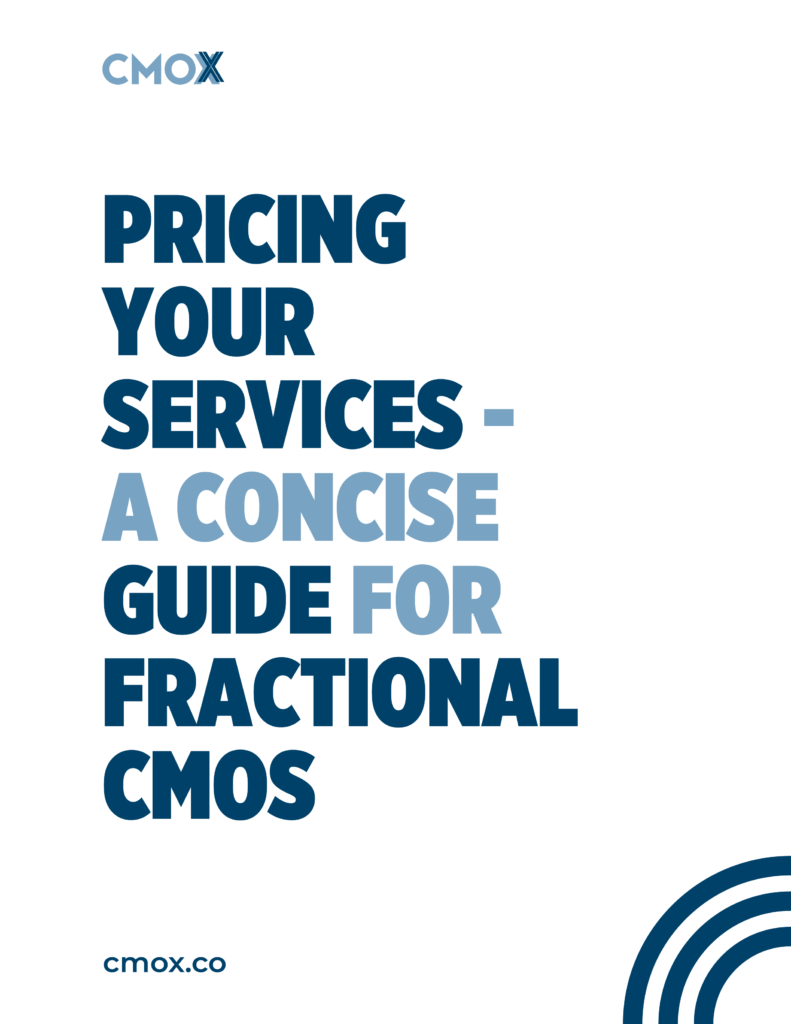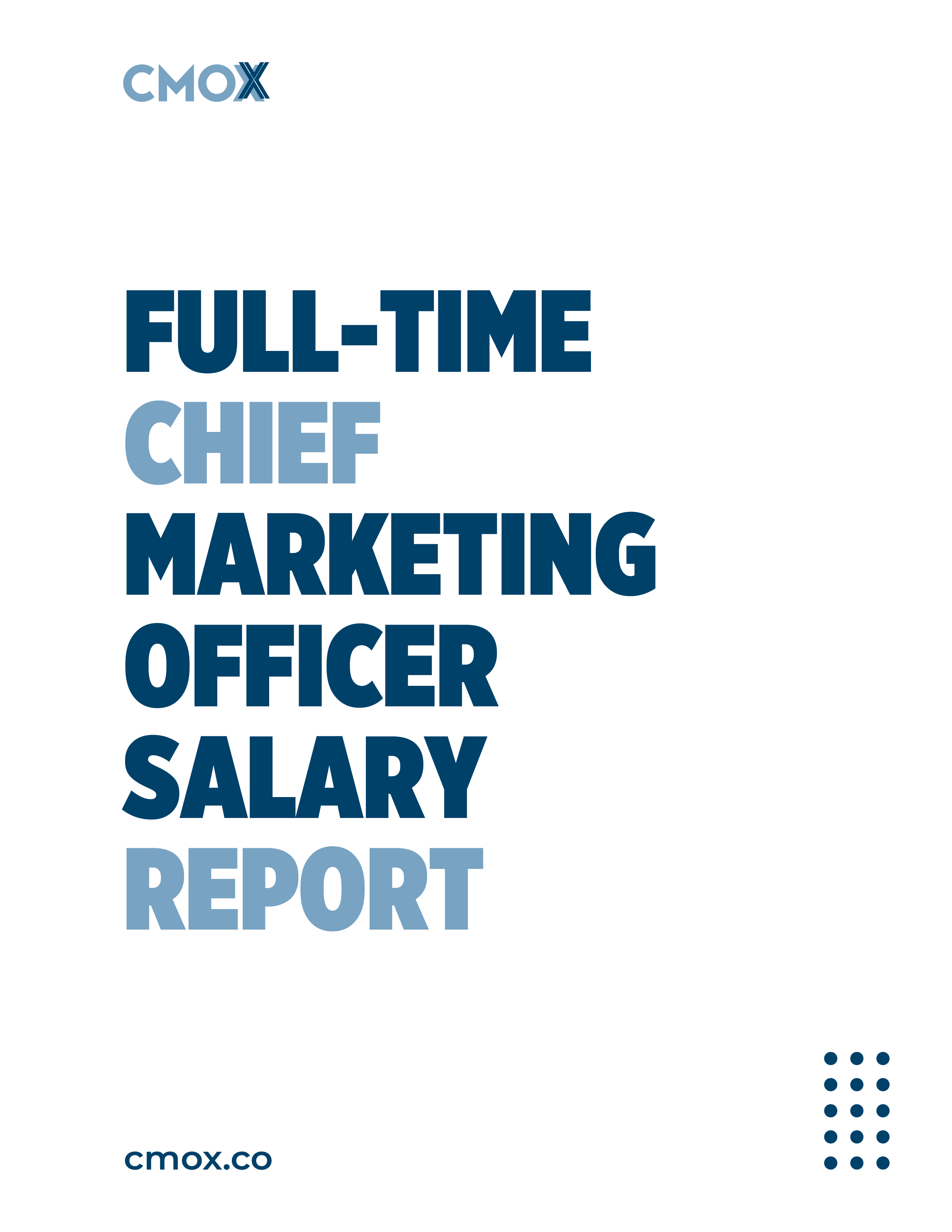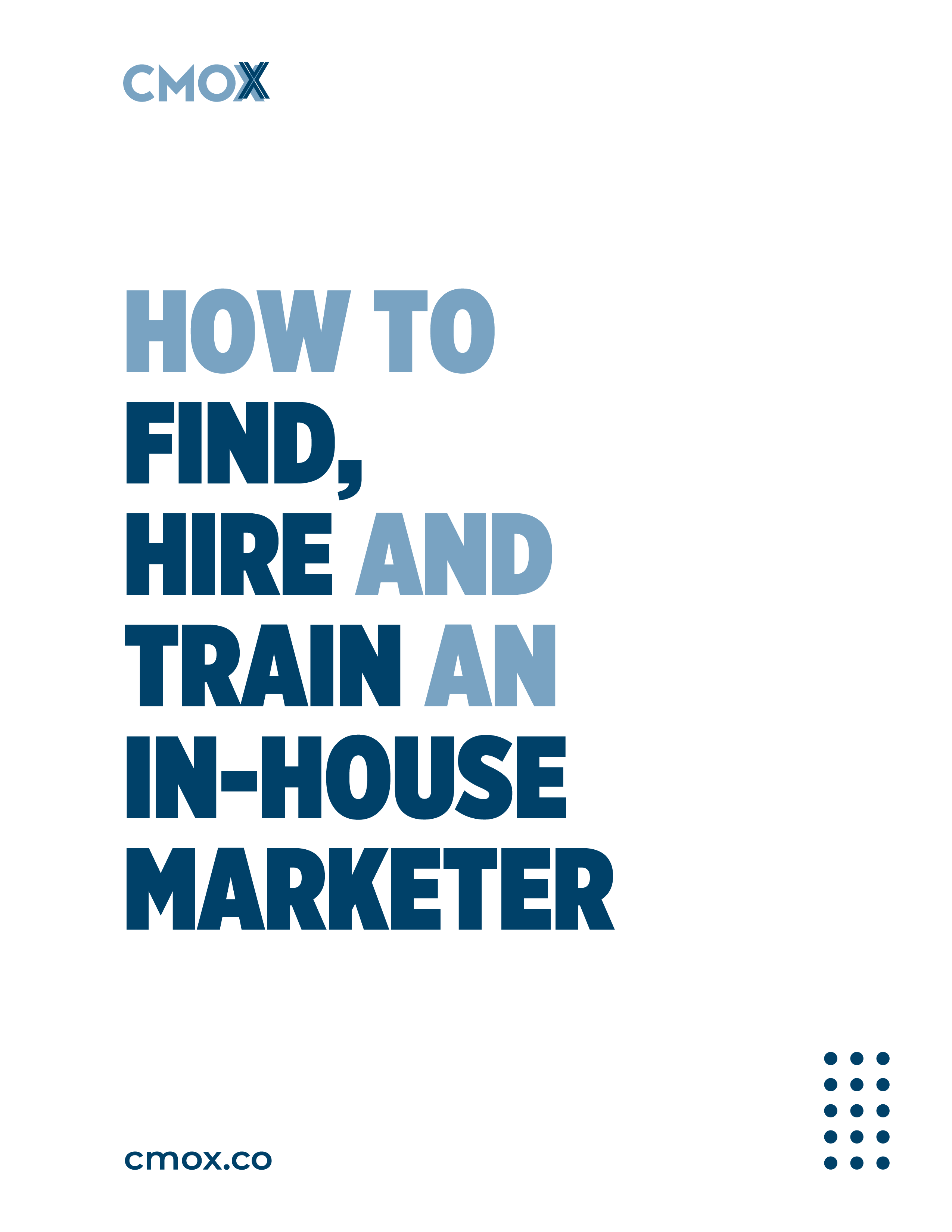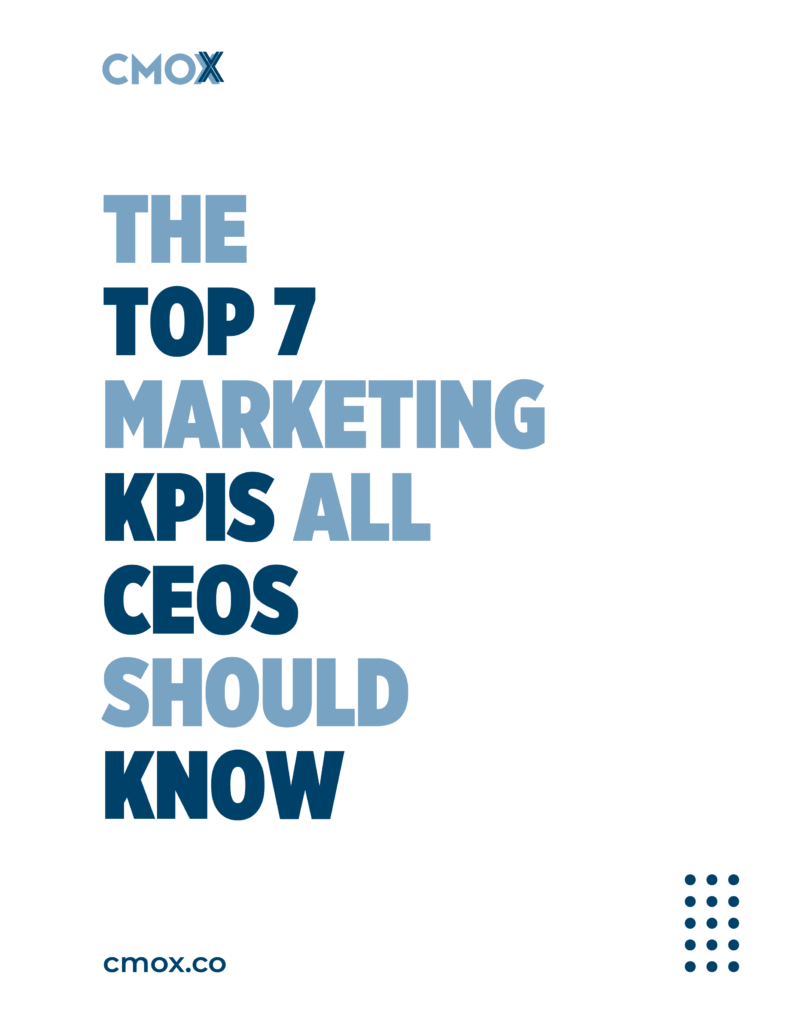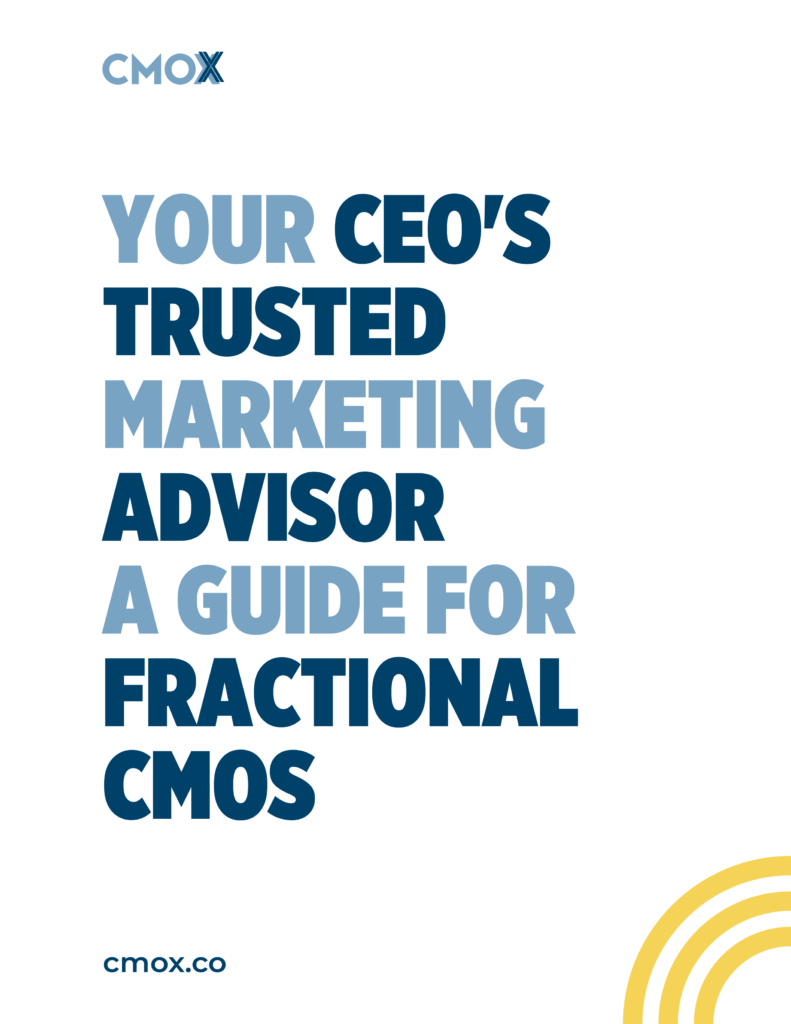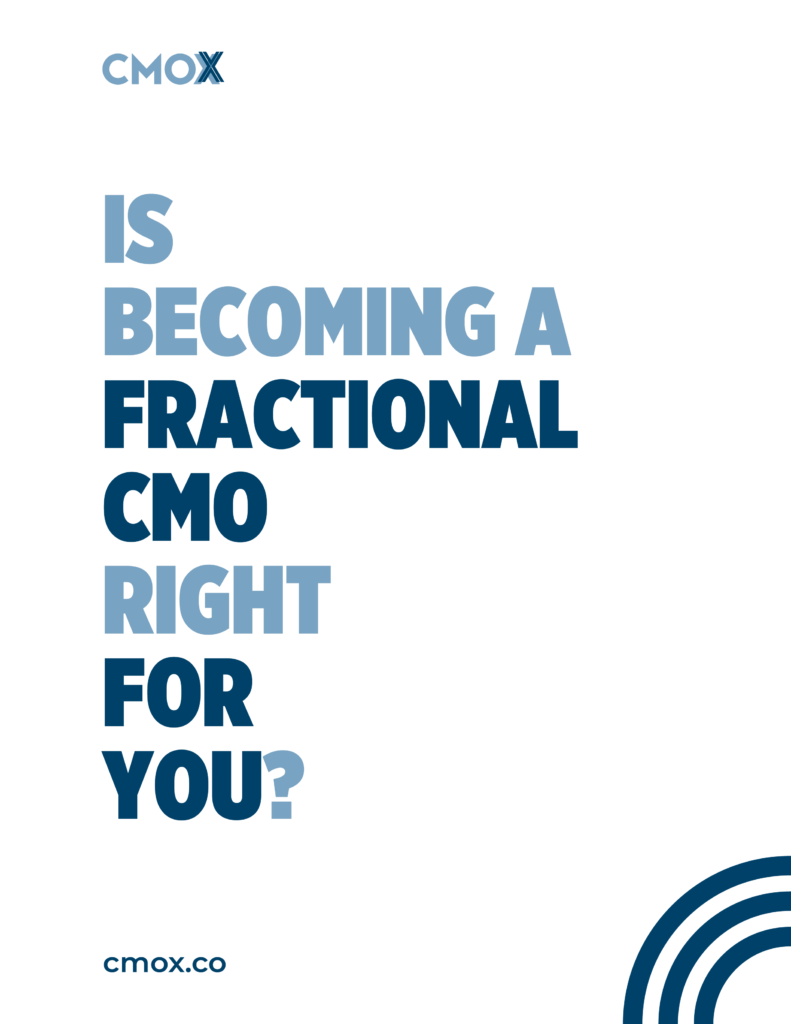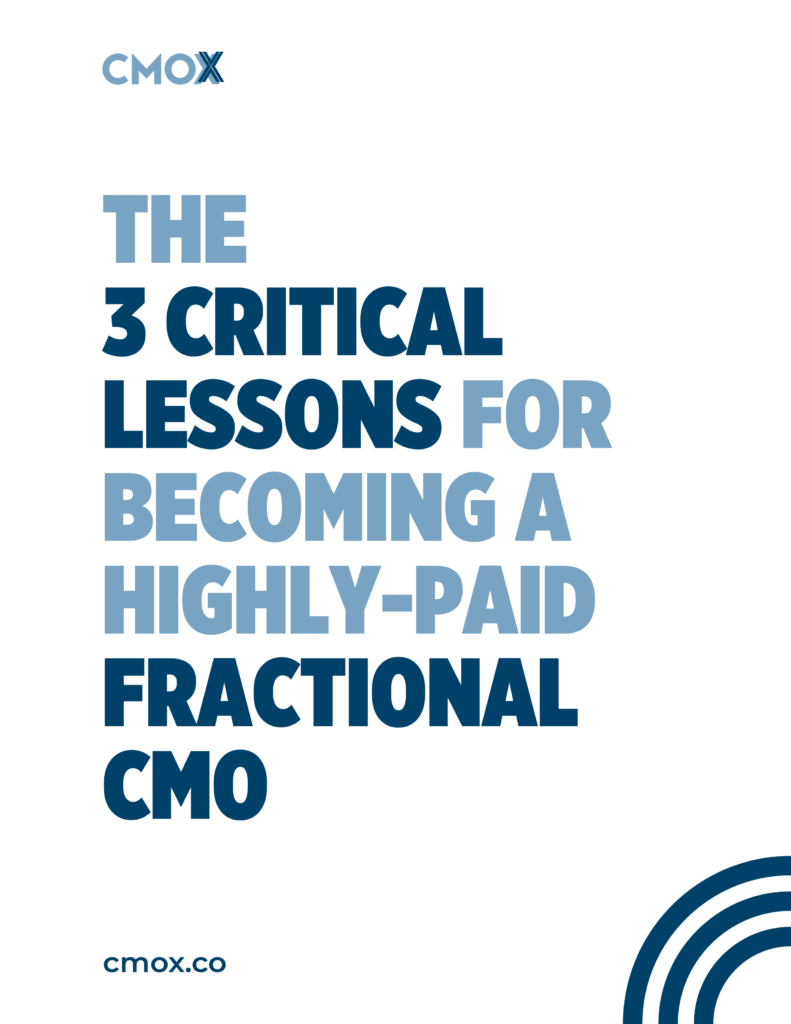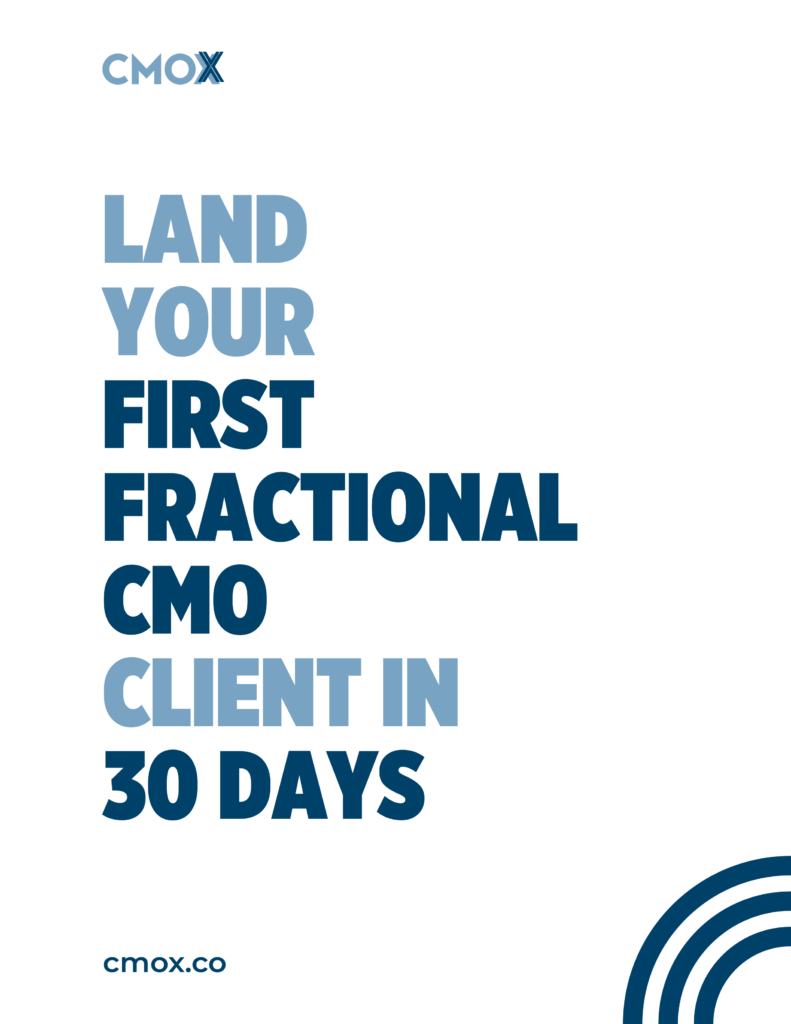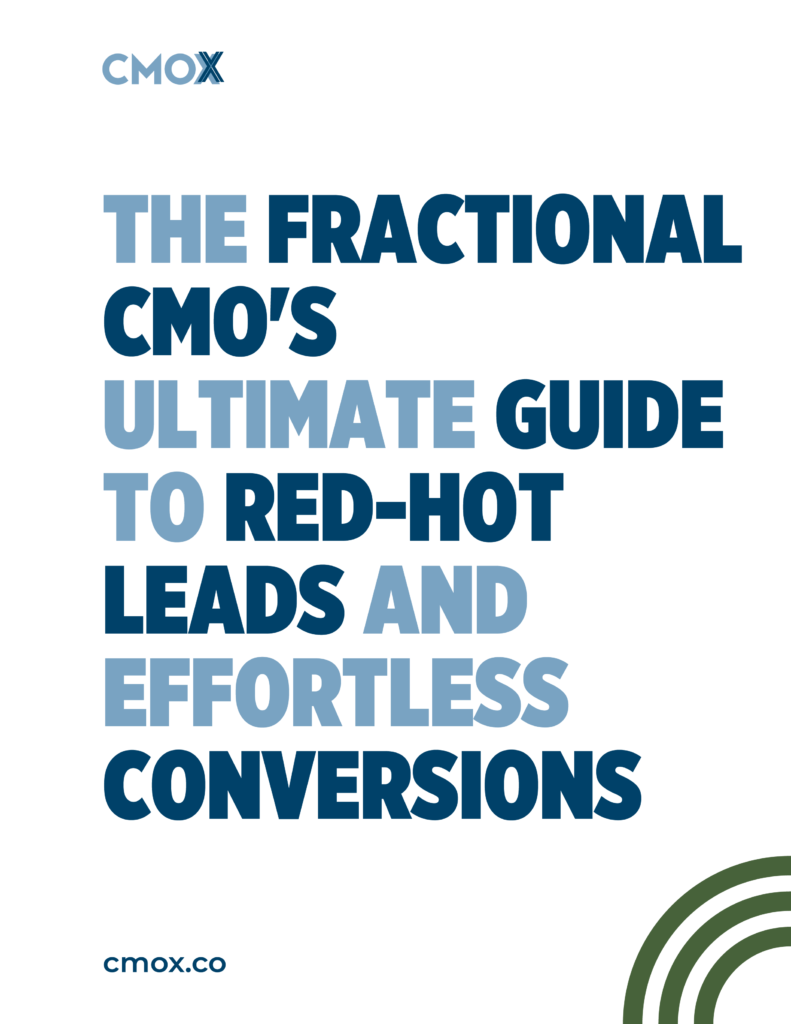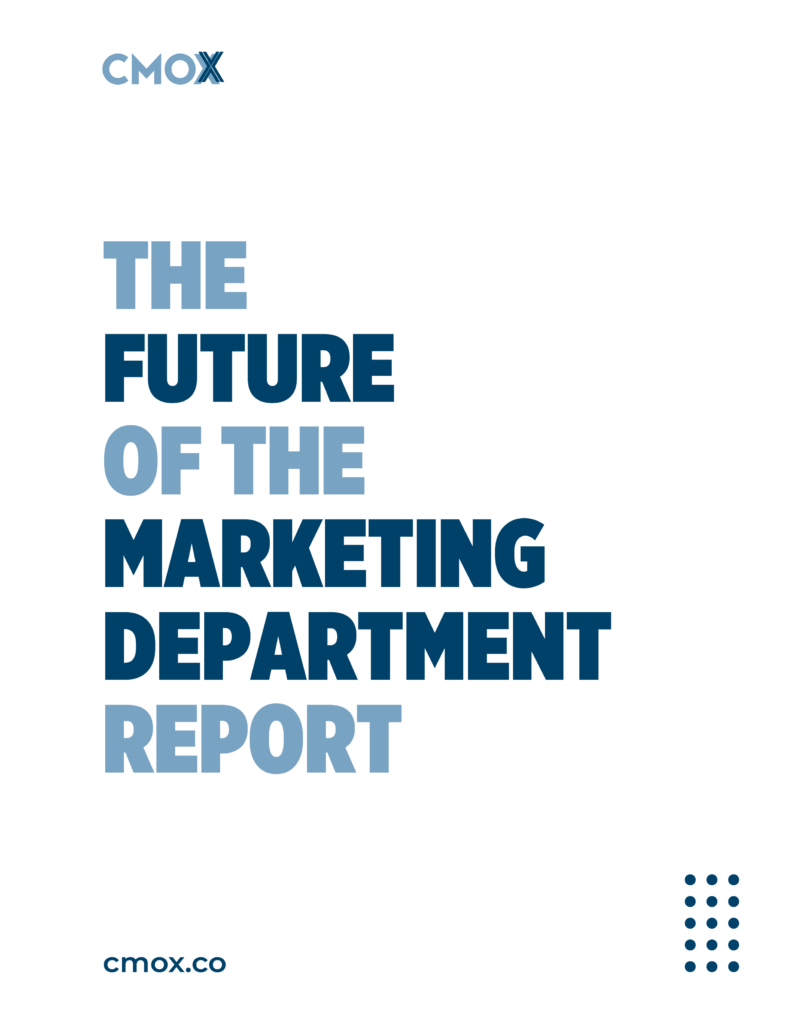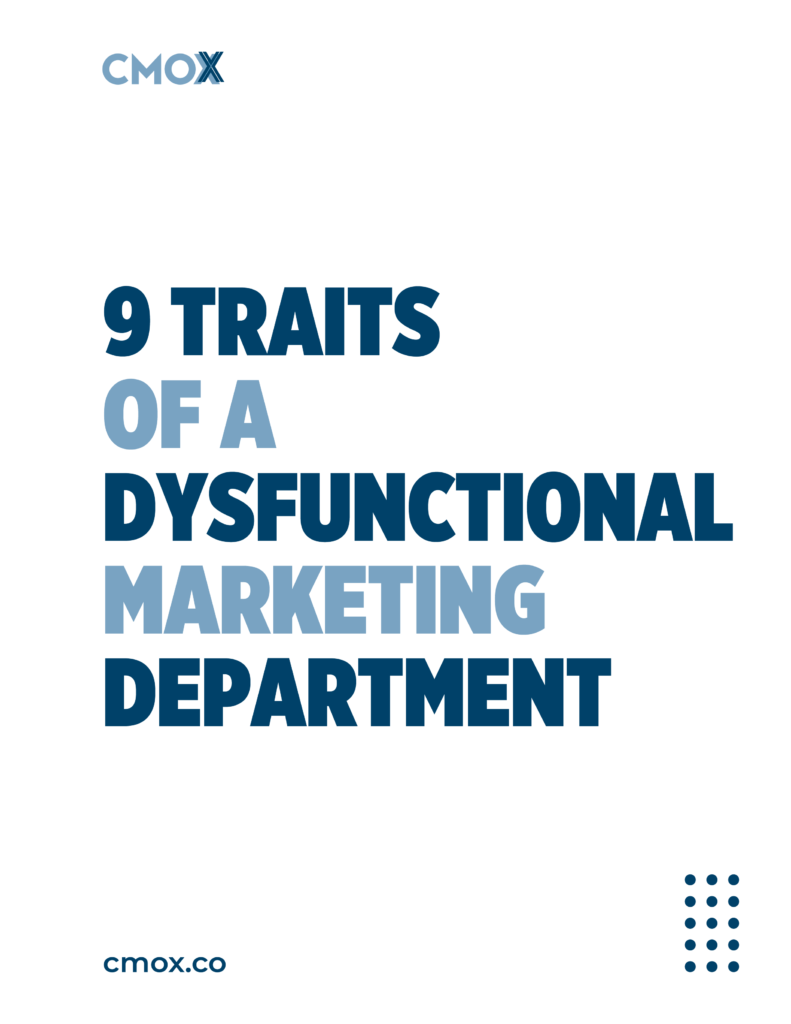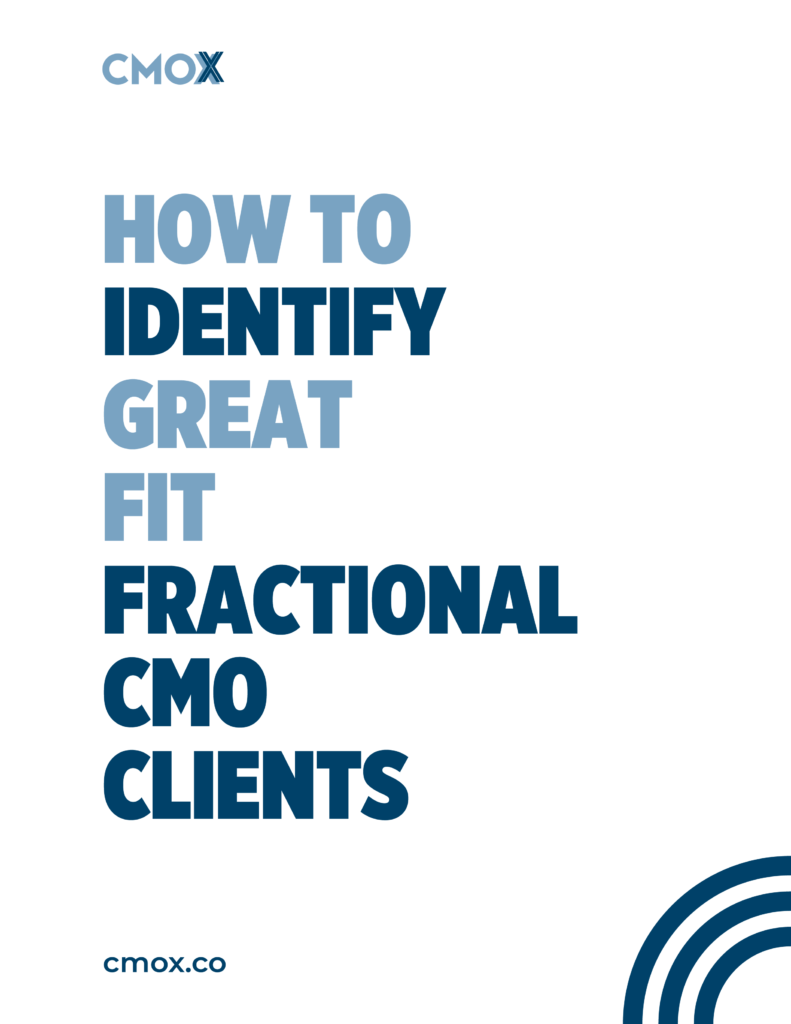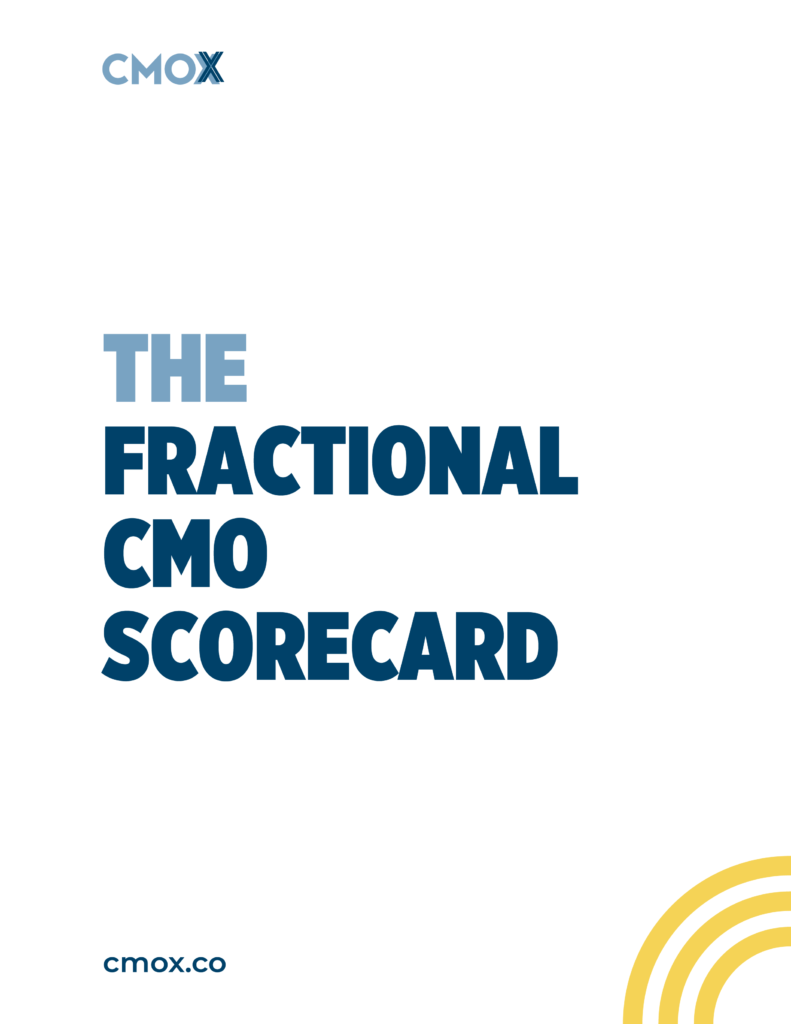Ep #98: Break the Beliefs Keeping You Stuck — with Coach Raphael Schwartzman

In this milestone episode of The Fractional CMO Show, Casey Stanton sits down with longtime teammate and coach, Raphael Schwartzman, for a raw and insightful conversation on what really holds fractional CMOs back. Forget funnels and lead hacks—this episode dives deep into the inner game: identity ceilings, self-permission, and how your limiting beliefs could be capping your income and impact. Raphael unpacks what stops even high-performing marketers from reaching their next level—and how to break through it.
Whether you're just starting your journey or feeling stuck at the 10k/month ceiling, this episode delivers the mindset shifts and coaching wisdom to help you unlock your full potential.

Episode highlights:
In this milestone episode of The Fractional CMO Show, Casey Stanton sits down with longtime teammate and coach, Raphael Schwartzman, for a raw and insightful conversation on what really holds fractional CMOs back. Forget funnels and lead hacks—this episode dives deep into the inner game: identity ceilings, self-permission, and how your limiting beliefs could be capping your income and impact. Raphael unpacks what stops even high-performing marketers from reaching their next level—and how to break through it.
Whether you’re just starting your journey or feeling stuck at the 10k/month ceiling, this episode delivers the mindset shifts and coaching wisdom to help you unlock your full potential.
🔑 Key Topics Covered:
- The “identity ceiling” – why your self-perception determines your success
- The real reason tactics alone don’t work for fractional CMOs
- Survival scripts vs. growth scripts – how they silently drive your actions
- Why some marketers feel they need permission to succeed
- Reframing sales as leadership – and why resistance to selling is an identity issue
- The trap of underselling and overworking to “earn” better clients
- The power of community, mentorship, and being seen for who you can become
Transcript:
00:00:00 Casey: In this episode, we talk to Raphael, who has been on my team since I started CMOx. He was with me even before I bought the CMOx domain. And we talk through what he’s seeing as the biggest sticking points for the fractional CMOs that come into the accelerator and how they get over them. Tune in and get your head on straight so that you can no longer have a ceiling for what’s possible for you. And you can have the kind of outcomes that you really, really want and I think deserve. Let’s go.
00:00:29 Casey: Marketers of the world, why do we work hard to solve small problems? Why do we reinvent ourselves and our clients over and over? And why are we giving away marketing strategy for free? With advancements in AI, we’re all seeing the marketing department shrink from the bottom up and companies need you to serve them as their fractional chief marketing officer. It’s time to solve bigger problems and bring home a bigger paycheck. It’s time to create the lifestyle we deserve and to make a greater impact. This is the Fractional CMO Show and I’m Casey Stanton. Join me as we explore this growing industry and learn to solve bigger problems as marketing leaders. The Fractional CMO Show is sponsored by CMOx, the number one company to teach you how to attract, convert, and serve high paying fractional CMO clients on your terms.
00:01:26 Casey: Hey, welcome in. This is the taping of the 97th, 98th, 99th, and finally the 100th episode of the Fractional CMO Show. And I thought just to have a lot of fun for these episodes, I would bring in guests, people that are in the accelerator, and then a very special guest that we’ll go with first, which is Raphael Schwartzman, who’s been with me since the start. And these are gonna be four individual discussions. And maybe there’ll be a little bit of crossover, but generally speaking, we’re to have four individual discussions with folks.
00:02:00 Casey: And I want you to get deep with them to understand their experience, what they’re seeing, what worked for them, what didn’t work. And how it can help you, hopefully, shortcut your time to become a fractional CMO and get sales ready, get past 10 K, and then become very successful financially as a fractional CMO who makes a lot of money. But more importantly dwarfs the amount of money they make by the impact that they make with their clients. That’s what we’re looking for.
00:02:24 Casey: So I want to start with introduction to Raphael Schwartzman. Raphael has been with me forever. If you know my story, I was living in New Orleans and my wife and I, when we were dating, we wanted to settle down, didn’t know where to go. So we got an RV and we hit the road full time. And I was in Washington, PA at the KOA campground and I got a letter from Raphael. I’d never met the guy before. He was living in Chicago at the time and he applied to be my assistant.
00:02:56 Casey: And I’ll tell you, it was chaotic. I didn’t know what I wanted is an assistant. I didn’t know how someone could help me. He was like, I’m living in chaos with a lot of opportunity and I want someone smart who can support me. I don’t know what else to call it, but an assistant. And Raphael jumped in with me and he helped me kind of project manage early clients. He got to watch me absolutely screw up the initial clients that we had. I mean, we can still laugh about that. There’s some real pain there.
00:03:27 Casey: He was there when I grew the business up to 22, $24,000 a month, and then effectively lost it all overnight. Very scary. And through it all, he stuck with me and Raph now sits in a role of coach inside of the accelerator and he has an experience that no one else has. He gets deep with our members and he meets with them one-on-one at their request to really dive into what’s blocking them and stopping them from being successful. Raph has an incredible heart and intuition, and ability to just get into what is stopping someone, what their story is, what their experience is, what they are kind of like. The reasons that they’re not doing something or that they’re believing something or the reason that they never feel like they can actually get something off the ground.
00:04:21 Casey: Raph’s the guy that… he’s kind of like a, I don’t know, a green beret who deploys into someone’s brain and removes the obstacles. It’s a beautiful thing to watch. And it’s almost a joke inside the accelerator. When people talk to Raph, it’s like, all right, I gotta take that one to Raph. Like Raph can help me get this one out of my brain and help me solve it. And I’ll just say, before Raph comes on, that being a fractional CMO, some people say like, you know, they’ll get on a call with our team and they’ll say something like, Casey… Or they’ll talk to like Justin or Melissa or John or whoever on my team. And they’ll be like, what’s the thing that you’re doing to get clients? And it’s a fine question for someone to ask.
00:05:00 Casey: But it comes with the belief that the reason that the person isn’t successful, like this fractional CMO or this potential fractional CMO. The reason that they’re not successful, they think is, because they don’t have the lead getting strategy. They think they’re one lead away to use Russell Brunson’s approach, you know. You’re not one funnel away from wild wealth. There’s something else that’s stopping you. And RAV helps you figure that out. So if you think that you’re one tactic away, I’ll tell you through coaching hundreds of fractional CMOs, it’s more than that.
00:05:31 Casey: Certainly tactics are important, but it’s this inner game stuff. And there’s nothing more, I think, difficult in life than being in marriage. Being marriage is tough. And I think starting your own business is tough. These are two really serious things. And it requires you to lean into the difficulty of these dynamics. A lot of stuff comes up for you. So when you listen to my conversation here with Raph, I want you to kind of clue into that stuff and hear what makes sense for you and what you can take away from it. You’re welcome to ask questions in the chat. Please don’t come off mute though. Raph, I’ve got you here on spotlight. Dude, I’m so excited that you’re here. Thank you for coming on.
00:06:11 Raphael: Yeah, thanks for having me. This is exciting. 90, what is it? 97? Episode 97, 98, 99, 100.
00:06:18 Casey: Yeah, you’re 97.
00:06:19 Raphael: 97. Wow. So I like to joke that it’s like, I’ve been at CMOx before CMOx existed. Like I remember when you came with the name, you were like, okay, I got it.
00:06:31 Casey: Oh, yeah. Even before the name. Wow, yeah.
00:06:34 Raphael: Yeah. And that was back when it was like CMOx exponential and we’re like, “Eh, let’s drop it. Just keep the X.” Like kill the vibe kind of thing, right?
00:06:41 Casey: Facebook.
00:06:42 Raphael: Yeah, exactly. It’s exciting to be here. I can’t. It’s gonna be in September, September 1st. It’ll be eight years.
00:06:53 Casey: Wow. Eight years you’ve been riding.
00:06:56 Raphael: Eight years. Do you remember who you were eight years ago and who I was eight years ago? That’s like a whole, I think, I don’t know if this is true. I like it as a story though, is that your body replaces the majority of its cells over seven years, right? So if you’ve known somebody for over seven years, they’ve known multiple versions of you. Like literally your body is different now and you’re a different person. And that feels true in our relationship in a very positive way for me. So I’m really excited to be here and celebrate.
00:07:29 Casey: Yeah, man. Yeah, it’s huge. It’s wild to think how far, like how much things have changed going from winning one client and just being like elated to it to now like being able to help other people do the same. Win their first client and then grow from there. So I want to hear Raph. So you meet with our members, you kind of get one-on-one and I think one of your geniuses is like getting deep quickly. So can you just like, I don’t know, rip off the band-aid and tell me what are some of the mindset challenges or common issues that you see our members facing?
00:08:01 Rafael: Yeah, absolutely. And I want to get into it. At the highest level, what I would probably label it is an identity ceiling. And the reason that I talk about it that way is because I go through this like this is not work that I’m just doing with members in the community. This is work that I do on with myself all the time. And it’s an experience that I’ve had. I’ve gone through it. And then I’ve applied it, and I work with others on it. And I see change. I don’t want to say that change happens always happens quickly. Sometimes people’s blocks or challenges they take a long time to massage, you know, and we’ve kind of got to really work through it.
00:08:38 Rafael: Sometimes it happens in a day. Sometimes it takes three months. It just depends on what we’re working with. But when the shift happens, it opens up space for everything that’s stuck to move in a way that we don’t expect. Things get easier. Things that we think are going to be so hard and take so much energy, that difficulty evaporates when this shift happens.
00:09:03 Rafael: So what am I talking about? Identity ceiling. Probably if you don’t have what you want in life, in your marriage, or in your personal life, or in your business as a fractional CMO, you don’t have the clients that you want. They’re frustrating. There’s some difficulty there. There’s probably an identity ceiling that you’ve hit. I think of this as the edge, right? In my model, I’m like, you’ve got a shift, a gap, and an edge. So when you hit this ceiling, there’s a person you would need to be to have everything that you want.
00:09:39 Rafael: And you don’t believe that you are that person. And until you do, you’re going to stay stuck in the same paradigm, spinning your wheels in the dirt over and over and over again, until you’re able to see yourself as the person and start making the choices that that person would make rather than waiting for permission from somebody else. Sometimes that permission can be really useful because we get a new role model, right? Like you, I think this is something that you do extremely well is role model what’s possible.
00:10:06 Rafael: But we also have to see ourselves that way. So we need somebody who will see us that way, which again, is I think something that you do really well. And I think that’s something you really did well for me, which helped open me up to this. When I first started working with Casey, I didn’t think I knew anything about marketing. I found out that I did through some of the work that we did together, going, “Oh, I see what you mean by that.” And here’s the connection. But there was so much that I had never learned before. And you held and you saw in me, you held the belief that it’s like, this is something that you can figure out.
00:10:39 Rafael: Oftentimes, that wasn’t my role. My role was to help you. But what we discovered together was it’s like, when I start opening up what’s possible for me and I can step into that and grow and support you in new ways, then everything just becomes more possible. It’s the value of having a great assistant. But what I see with folks in this community is that even people who are coming in with tremendous experience.
00:11:05 Rafael: I mean, some folks who like even now, where I feel like. I’m confident in myself and how I show up in like a marketing strategy and leadership space. And these people come in, I’m like, whoa, okay. Like what do I have to offer you, and the support that I can give you? And then what we find is that a lot of people, even when they’re these just heavy hitters, like you said, they’re, they’re still holding themselves back, because they don’t see themselves the way that other people do.
00:11:40 Rafael: So I want to get I can share some specifics. But this is like, think this is the overarching thing, is that there’s this like, through line between your identity and the actions that you’re willing to take. And then the impact of that is not just what you’re capable of doing, but how other people see you, and the opportunities that open up from that when you’re embodying, you know, the preeminent fractional CMO in your space, in your niche, in your industry, whatever, it changes how you think.
00:12:10 Rafael: It changes what you’re willing to do, what you even see as possible to do, and the way that you show up. And so it just magnetizes attention as a thought leader in a new way, and opportunity comes with that. So I got more to share, but that’s kind of the…That’s my high level.
00:12:29 Casey: Let me give like an example that I’m seeing people come in that are, I can make a few people that are just absolute bad asses, huge wins. And they need something to help them figure out. Like they can’t go and sell that, that version that I’m seeing, like, Oh my God, I wish I was you in some ways. They can’t see that in themselves and go sell that. I see that often come up in the form of permission-based sales, like I” have to have your permission first to sell you the small thing so that I can earn the middle thing so I can earn the big thing that I actually really want.”
00:13:01 Casey: Or I have to sell the client that can barely afford to pay me, and I have to get beat up for the next year or two, so that I can increase my rates marginally, so I can do that for another two years. So finally, in 10 years, I can have the outcome that I actually want. But then, Raf, we’ve got these other people who come in, and I don’t know if it’s, and I think this gets a bad rap, but like a sense of entitlement, like I’m entitled to great clients. That’s their feeling, and then they go and get them.
00:13:25 Casey: Like there’s something there that’s happening. That’s just like the same person with the same experience, like two twins, same experience. One’s going to have a sense of like, deserve these types of great clients. And the other one’s going to say, you know, I have to kind of like repent, like earn my way to it through some weird, painful process. What do you think about that?
00:13:47 Rafael: Exactly. No, you’re exactly right. And I would even add like that. There are people that I see that are, that are working on cold prospecting or initiating, like network activation or building out, like, know, they’re going to approach their targets and establish a relationship and work to engage with them. And then there’s a sense of limitation or a belief that they need to know that the prospect already has intent before they can even start the conversation. And they have a resistance to doing it. They have a resistance to starting those conversations and opening up the possibility of selling anything, let alone what they’re selling.
00:14:26 Rafael: And so there’s even a limitation at that level. My take, I wanna come back to it. You were saying, what’s the key here, right? Like the sense of entitlement versus, which I like that term, cause it’s a little provocative, and it’s like, if you hear that and there’s something in you that goes, I don’t wanna be entitled, why not? What’s bad about being entitled? And where are you sourcing your sense of entitlement or deserving, right? We might say your sense of deserving from is it internally sourced or is it externally sourced? Are you waiting for someone to give you permission to say you’ve earned it? Here’s your certification. Here’s your license.
00:15:06 Casey: Here’s your degree from Yale.
00:15:09 Rafael: Right. And I think that a big, it’s useful to have those things. It’s useful to have, to be able to build credibility.
00:15:16 Raphael: And it might be useful for us to look back and say, “Okay, the accomplishments, the hardships, the rites of passage, the fires and tribulations, the trials and tribulations that I’ve gone through that have helped me get where I am.” It’s not to say that you don’t have to put your money where your mouth is. You absolutely do. And you’ve never solved a new problem…. wait, wait for it. Hang on. Every new problem that you’ve solve—that you’re solving, you’ve never solved before.
00:15:47 Casey: Sure.
00:15:48 Raphael: Right? So like, If the idea is, “Well, in order to ask for the money, I have to have done the thing before.” It’s like, “No, that’s not, that’s not it.” It’s who you are and how you solve problems that makes the difference. Not—I’ve done this before. I mean, that’s really, it’s a great, I mean, it’s a great sales line, right? We all want those. “Hey, you have this problem in your business. I’ve worked in a business like that before. I can solve it. Here you go.”
00:16:10 Casey: It’s great. It’s great that you can say that.
00:16:12 Raphael: Yeah.
00:16:12 Casey: But sometimes the experience doesn’t actually exist in the world. No one has launched an AI product who’s done X, Y, and Z yet because it’s brand new. So what do you do in that situation?
00:16:21 Casey: Right. And how did you get there in the first place? Was it by accident? Sometimes we stumble into things where it’s like, “Oh, okay, great. I see an opportunity and I’m going to take it.” But that’s the thing is you created it. If you couldn’t see the opportunity and you weren’t willing to say, “I’m going to trust myself. I’m going to go and try to do it.” Then the opportunity would never exist in the first place. So because you would have left it on the table, you would have been, it would have been invisible to you.
00:16:43 Raphael: So you have to see yourself as the kind of person who finds those opportunities, who takes them and who creates value from chaos, value from problem. And then, you don’t have to wait for an accident to show up that gives you the opportunity to prove yourself. And you don’t have to wait for permission for someone else to give it to you. You go and you find it, you get into the spaces, you give value, and then people come to you.
00:17:09 Casey: Yep. Yeah, that’s spot on, man. That’s spot on. So will you tell me about someone, I can think of people, but I want you to tell me who you’re thinking of who came in with like a limiting belief around what’s possible for them. And then that belief was removed.
00:17:25 Raphael: Yeah, absolutely. I won’t name them. I will keep that confidentiality. And there was someone in the community who had—has tremendous experience, had served clients really valuably across a lot of different ways of marketing, was already leading in a lot of ways and could not get started. Like was spinning his wheels and was just like literally doing not the things that he should be and not doing much. And we worked together. This was one of those examples where sometimes the block moves quickly.
00:18:07 Raphael: Again, I’ll keep kind of private like what the content of the work was, but what we discovered was that he was still staying, he was sitting in an old paradigm. And he was sitting in kind of an identity attachment to an old community where he still saw himself as a part of that community in a way that if he deviated from the behavior of the community, rebranded himself, went his own way, did his own thing, that he would be abandoning them in some way.
00:18:37 Casey: He’d be abandoned?
00:18:38 Raphael: Abandoning them.
00:18:39 Casey: Oh, abandoning them, got it.
00:18:41 Raphael: And maybe abandoning, abandoned himself, I’m not sure.
00:18:43 Casey: Yeah, that’s real.
00:18:44 Raphael: The core of it is loss of community. And not to get too deep into human psychology, but that’s one of the core fears that we have. If we’re in the wild as humans living in small villages together, if the community is gone, then we die. So—
00:19:02 Casey: Very intelligent to be afraid of that.
00:19:04 Raphael: It’s very intelligent. And if we don’t recognize the difference between our nervous system survival strategy and our conscious intention and what we’re doing, then we get literally locked into a pattern of, “I don’t even know it and I’m gonna make up all the excuses as to why this is not the case. That’s what most people do. I do it all the time. I noticed my way of doing that a different way this morning when I was doing my morning writing exercises. It’s there all the time, it’s everywhere.” So we gotta find the places where it’s sticking us the biggest and work those and then it so much cascades and gets free afterwards.
00:19:41 Raphael: But the point is, so we did some work, we were exploring that attachment, I didn’t even know going in right that that was the that that was the thing, but I knew that the block was there and we and we build some trust and we and we start exploring. And what we found was that not only was that block removable, removable, I mean, transformable, but it also held with it—a really valuable key that then fueled this person to take action and then achieve such, such extraordinary success, which took some time, right? Because sometimes the internal world… goes and then the outer world takes some time to catch up. But whole like that blocks removed months of inaction gone action starts. And now I’ll say is he’s making more money than he’s ever made and serving clients in a way that is really impactful. That’s one of them. That’s one of the stories.
00:20:41 Casey: Right. It’s a beautiful thing. And that story’s not uncommon for people to have like this kind of internal blocker And these are the same internal blockers. I think what I find the correlation here, in my life is like, there’s the professional blockers that I can compartmentalize and say, “Oh, that’s a business thing.” Raphael and I worked together, with a client and we wrapped that project up. And I say, “I hated that, that client.” Like I really disliked them. And then it wasn’t, you know, another month later, I picked up another client, Raphael joined on. And like a month after that, I was like, “I kind of hate this one too.”
00:21:20 Casey: And what I realized was like, “I didn’t hate those two people. There was something in them that I didn’t own in myself. And it was like me rejecting this external internal thing.” And it’s when I finally got clear on that, that I could see them for who they were and understand the problems that they had. And that’s a level of just like maturation that had to happen in business. Otherwise I’d just be fighting like, “I hate this client. I hate this client.” Like I want to do the first 30, 60, 90 days with the client. And then I want to cycle them out.
00:21:48 Casey: And that’s not how you build a sustainable business. That’s in the same way marriage is. that’s why I think like a marriage is so valuable or a committed partnership because you’re working together to solve a problem, which is to like, you know, create a home and a happy life for each other. And what you grow in business, I think it has a direct correlation to family. And when I grow in with my wife or I grow in therapy, that interacts with my business and also in my personal life. So I think all this stuff is related and I think it’s really difficult to compartmentalize those things. Do you agree with that, Raphael? Do you agree with that, Raph?
00:22:21 Raphael: Everything is everything. How you do anything is how you do everything. You will learn the lesson until you learn the lesson and it will show up everywhere until you do. The key thing here, if I were to try to map it in just a couple pieces is everybody’s running survival scripts or growth scripts and they work or they don’t. And if you’re like Casey for you, you had some kind of survival script that you were running unconsciously and you figured it out. Cause you’re like, there’s a pattern here. [crosstalk]
00:22:58 Raphael: And there’s no end to this, right? Because the deeper you go, the deeper you can go, which is the frustration, but also the beauty of the process. You know, you’re running that script and then you start noticing it and then you start unpacking it and then you start going I have to take responsibility for this and it’s gonna show up everywhere until I deal with it. So, the buck stops with me, right? And I think that’s a really key piece of leadership is saying, “I might not have caused it, but it’s my responsibility.”
00:23:25 Raphael: And the container of it all is that you have to decide who you’re gonna be. Maybe it’s not who you’ve been. Maybe it feels very different, but you’re just having who you’re gonna be. And then, you have to make sure that your scripts play to that character. And then, you know, got to take care of your body and stuff as your struggle and your nervous system goes, “This is too much and I can’t handle it.” And then that’s why you have community and that’s why you have support in your processes and one-on-ones and all that stuff.
00:23:53 Casey: You know, people that believe in this better version of you or the version of you that you want to become.
00:23:57 Raphael: Right. To be seen when you, when you forget who you are. So, you can remember who you are. And that’s one of reasons why community is so valuable. And it’s and it’s wonderful to have support of people that of people who get it and who are doing it and walking the path. Like you need that. And you also need people who have walked the path because then they can remind you and be like, “I don’t get stuck in the crap.” You’re gonna step in the, you know.
00:24:20 Raphael: And they’ve gone beyond it a little bit so that they’re able to see where you’ve been for you and kind of pull you out of the same struggles that you might be facing when you’re just like working with the peers and going, “Ah, I don’t think this works.” This odd, you’re making external excuses. This audience just isn’t the right fit. And maybe that’s true. Maybe something needs to get optimized there, but maybe you’re shrinking from objection handling in a sales call because you don’t wanna be a salesperson and you’re like, “Nevermind, I’m just not even gonna do that, because it feels icky.”
00:24:50 Raphael: This is another thing that’s come up quite a lot. And it’s one of the reasons why we’ve really dug into the selling portion of the fractional CMO work, because I see a lot of folks that come in, they’re excellent leaders, excellent executives, excellent marketers. And then there’s this like, sales is gross. I don’t like this.
00:25:10 Casey: Except table scraps, they’re gonna overwork, they’re gonna like give too much and then be frustrated when the client doesn’t appreciate it. It’s really weird, right?
00:25:18 Raphael: Right. Or on the other side of it too, is this like, well, “I don’t even wanna be in a sales conversation.” And it’s like, “Why not?” And it’s like, well, if I’m selling something, there’s something coded, there’s some script, some identity attachment. Selling is bad, selling is pressure, selling is gross. What I found… And again, this is one of those things that I’ve done it myself. So, I figured it out. “Oh, this is how I’m orienting to it.” And I found it so true for so many people is that they’re missing the fact that selling is just a part of leadership.
00:25:51 Raphael: So like, you know, working with folks we find, for example, it’s like, this is kind of how the conversation tends to go is, well, I don’t like selling. I don’t wanna be a salesperson. I don’t even want to get like… In the underneath, they’re probably not saying this, but they’re saying, “I don’t even wanna get good at selling.” Because I don’t wanna identify with the salesperson. And so, I say, “Okay, but what are you then? What are you good at?” They’re like, “Well, I’m an executive. I lead, I lead the team and I make the strategy happen.” I think, I’m like, “Great, exactly. You’re in the right place. Perfect.”
00:26:26 Raphael: “Do you listen to your client and understand their problems?” And they’re like, “Yeah. Of course, I do.” [inaudible] And then, “Do you help them create a vision for their future where the problem’s solved?” And they’re like, “Yeah. That’s part of the job.” And I’m like, “Right.” And then I say, “So, do you talk about investment, what it’s going to take in terms of time and energy and money to solve that problem and create that future?” And they’re like, “Of course, we have to budget, we have to do all these things.”
00:26:51 Raphael: And I’m like, “Cool, do you hold them accountable? Do you do you insist on a decision, whether they make the decision in your favor or not? Do you get them to make a decision so that you can move forward?” And they say, “Yes.” And I’m like, “What about that is not set sales, right?” And I tell you, I’ve had folks just burst out laughing when they make that connection and they’re like, “Okay, I’m done, gonna go, I gotta go do all the things now.” Because..
00:27:15 Casey: Message received, hang up the phone.
00:27:18 Raphael: Right. And sometimes ,there’s the difference between… I’m like, “Oh, okay, I see how most of that is sales and the issue is really getting into the conversation.” I’m already in the conversation, I already have the relationship, I’m like, “Great.” But that part of it, those things aren’t the issue. What we really need to look at is just starting the relationship. That’s where we need to do the work.
00:27:38 Raphael: And that’s so much more attainable, accessible than becoming a whole salesperson, right? Because you already done most of the work. And so, it’s that expansion of identity. Who do you see yourself to be so that you can take the actions and make those choices? And when you can remove the self-imposed belief, what am I looking for? Misbelief that what you’re doing is different than what you want and what you need to be doing is different than what you’re already good at.
00:28:09 Raphael: And then, there’s skills and there’s- [crosstalk] But you can’t learn, you can learn all the skills and you will never use them. Either because you’ll be afraid of them or they’ll just not, they’re just stuck in you. They won’t.. [crosstalk]
00:28:25 Casey: Feel aligned with how you’re talking. It’ll feel weird. People won’t trust you.
00:28:29 Raphael: Right. Yeah. That’s so important, Casey. That lack of trust, it comes from incongruence. It’s doesn’t match who you’re being. And people feel that and they go, we’re gonna look elsewhere. We’re gonna look for somebody else. Yeah.
00:28:46 Casey: Well, we’ll keep your name on file and let you know if anything changes.
00:28:50 Raphael: Right. Yeah.
00:28:51 Casey: Alright. Raph, well, we got to wrap here. I want to say that the work that you bring to the accelerator, I think is really like a different dimension for folks. And if anyone here is like shame or like kind of weird vibes around this conversation and maybe you’re like half listening, tune back in for a second. This stuff is hard sometimes to lean into because of whatever happened in your life. Whatever made you believe this, maybe you worked for a boss who was a real ass and he like yelled at you all the time, or it’s like fear of loss. You’re gonna get fired or you know, whatever the thing is for you, you’re being bad. You’re not being good, whatever. Like all that stuff is very normal. And a lot of people, if they’re just being honest, I have very similar experiences to you.
00:29:35 Casey: So being a community of people who talk about this stuff, I think is incredibly valuable. I would just say like, this isn’t like something that we stay on though. It’s like you talk about it, you identify the problem, you get to a solve as quickly as you can so that you can move on and go sell services and serve your clients and make a bunch of money and have a great lifestyle. Alright.
00:29:52 Raphael: And find the next ceiling.
00:29:54 Casey: And find the next ceiling, absolutely.
00:29:56 Raphael: And go, “Oh, who do I get to be now? And what rewards do I get to reap on the other side?” Because that whole idea, right? Is like, you surrender to that feeling, “Oh, my body does not like this right now.” Right? Especially, when we’re like, “Oh, I don’t like the conversation. I’m talking about shame, that’s gross. I don’t wanna deal with that.” But then it’s like, cool, let yourself deal with that. Let it happen, figure out who you’re being, what the script that you’re running that doesn’t work, optimize it, release it. And then on the other side of that, it’s the goal that you’re looking for.
00:30:28 Casey: Right. It’s awesome. Raph, thank you so much for being here, man.
00:30:32 Raphael: Thanks for having me. It’s a pleasure to work with you as always.
00:30:35 Casey: Awesome. Alright. I’ll see you soon.
00:30:36 Raphael: Alright, see ya.
00:30:38 Casey: Thank you for sticking around for the full episode. As you know, learners are earners, but you’ve got to take action on what you heard today. For more information and show notes, visit fractionalcmoshow.com. If you’d like me to answer your questions on an upcoming episode, you can share your question at fractionalcmoshow.com. And last, please hit the like and subscribe button, so that I know that this content is helpful to you. Alright, go get em!
Join Our Community
We are excited to announce the Fractional CMO Community Facebook Group. This aims to be a place where Fractional CMOs or marketers considering becoming a Fractional CMO can connect and share ideas.
Locations CMOx® serves
- New York
- Philadelphia
- Los Angeles
- San Francisco
- Chicago
- Houston
- Dallas
- Austin
- Miami
- Atlanta
- Denver
- Boston
- San Diego
- Seattle
- Portland
- Minneapolis
- Milwaukee
- Detroit
- Phoenix
- Washington D.C.
- St. Louis
- Toronto
